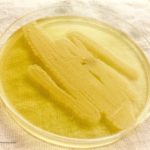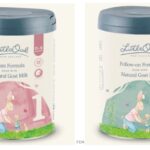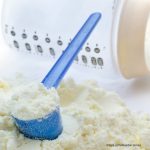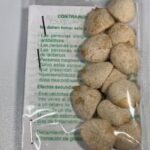Oceanitan baby food manufacturer received an FDA warning letter after a consumer complaint was filed about an infant contracting a botulism infection. An inspection found that these ready to eat baby food products that are packaged in reduced oxygen packaging are adulterated because they were "prepared, packed, or held under insanitary conditions whereby they may have become contaminated with filth or rendered injurious to health." That facility is located at 2937 East Pico Boulevard in Los Angeles, California. The FDA inspectors also found that there were significant violations of the labeling regulations for foods, which means the baby foods were misbranded, and the owner in charge did not comply with preventive controls provisions of the Current Good Manufacturing Practice, … [Read more...]
More FDA Outbreak Investigations Closed With No Answers
There are more FDA Outbreak Investigations closed with no answers, in the just updated FDA CORE Outbreak Investigation Table. So far nine outbreaks this year have ended unsolved. For the Cryptosporidium outbreak that sickened at least 11 people, the outbreak is over and the investigation has ended. The only action the FDA took in this outbreak was to conduct traceback. For the two Cyclospora outbreaks, the outbreaks are over and the investigations have closed with no answers. One of the outbreaks sickened at least 72 people, and the other sickened at least 140 people. The FDA conducted traceback and collected samples for analysis, but could not find the source of the parasite. There is a new Salmonella Thompson outbreak on the table. The product responsible for these illnesses … [Read more...]
FDA Warns About LittleOak Natural Goat Milk Infant Formula
The FDA is warning parents about LittleOak Natural Goat Milk Infant Formula because the company did not submit the required premarket notification to the FDA to demonstrate the safety and nutritional adequacy of the product. The FDA must review key information about the product ingredients, nutritional information, and manufacturing information before infant formula can be sold in the United States. In addition, preparation instructions on the product do not align with measurements that are used on other approved infant formula bottles. If powdered infant formula is not diluted correctly, the infant can suffer physical problems. Diluting it too much may slow or delay growth, and not diluting it enough can cause dehydration, electrolyte imbalance, and kidney issues. The FDA did not … [Read more...]
FDA Posts Minor Updates on CORE Outbreak Investigation Table
The FDA has posted minor updates on the CORE Outbreak Investigation Table. There are six outbreaks on the table, and only two have been solved. Last week, the FDA added the recall of Ice Cream House ice cream products in relation to the Listeria monocytogenes outbreak that has sickened at least two people. All of Ice Cream House's frozen desserts are included in this recall. That outbreak investigation has not been updated since September 1, 2023. For the outbreak of Salmonella Newport, which has sickened at least eight people, the FDA has conducted an on-site inspection, has collected samples, and the samples are being analyzed. Traceback had already begun. In the Cryptosporidium outbreak in a not yet identified food, traceback has been initiated. At least 11 people are sick … [Read more...]
Gluten-Free on a Product Label Means Something For Celiacs
Gluten-Free on a product label really means something for celiacs. The FDA regulates the claim of "gluten free" and sets standards and definitions for the food industry to use. About 3 million Americans have celiac disease, which an auto-immune digestive disorder. People with this disease must avoid gluten or they can suffer from serious health consequences, including malnourishment. Gluten, a protein found in wheat, rye, triticale, and barley, gives bread its structure. Foods that include gluten include breads, cakes, cereals, pastas, and others including beer. In celiacs, gluten molecules attack villi in the small intestines. Those villi promote nutrient absorption. When they are damaged by gluten, nutrients can't be properly absorbed. Celiac disease is heredity, and it can … [Read more...]
Three Infant Food Manufacturers Get Warning Letters From FDA
Three infant food manufacturers received warning letters from the FDA after inspections were conducted at their facilities. The letters were for violations of the Federal Food, Drug and Cosmetic Act and FDA infant formula regulations. The letters were issued to ByHeart Inc., Mead Johnson Nutrition (Beckett), and Perrigo Wisconsin LLC. The letters "reflect findings from FDA inspections of these facilities over the last several months." At each inspection, the FDA issued inspectional observations and exercised oversight of each firm as they initiated recalls, in December 2022, February 2023, and March 2023. The recalls were for infant formulas potentially contaminated with Cronobacter sakazakii, a pathogen that can cause serious illness and death in vulnerable infants. The letters … [Read more...]
Toxic Yellow Oleander in Weight Loss Products Prompts FDA Warning
Toxic yellow oleander in some weight loss products has prompted an FDA warning. The FDA and the Maryland Department of Health have found that some products labeled Nuez de la India, potentially marketed as "botanical food," India Nuts for Weight Loss," "slimming seeds," India seeds for weight loss," or "diet seeds," appear to be yellow oleander, which is highly toxic. Yellow oleander is poisonous and native to Mexico and Central America. Eating this plant or its seeds can cause severe and even fatal health effects. The plant can affect the gastrointestinal tract, your heart, and cause neurological problems. Symptoms of yellow oleander poisoning include nausea, vomiting, dizziness, diarrhea, abdominal pan, cardiac changes, dysrhythmia (abnormality in heart rhythm), and more. One … [Read more...]
FDA Completes Final Actions on Partially Hydrogenated Oils
The FDA has completed final administrative actions on the use of partially hydrogenated oils (PHOs), also known as trans fats, in the food supply. This final rule reflects the agency's reasoning in removing this product. In 2015, the FDA stated that these oils are harmful to human health, and that removing them from the food supply could prevent thousands of heart attacks every year. Oils are hydrogenated to make them sold at room temperature. PHOs were used to make many foods because they were a cheap source of solid fats. Trans fats raise the level of LDL proteins in the blood, they can weaken cell membrane structures, contribute to insulin resistance, and are associated with certain types of cancer. In the final rule, the FDA states that PHOs are no longer included in an … [Read more...]













